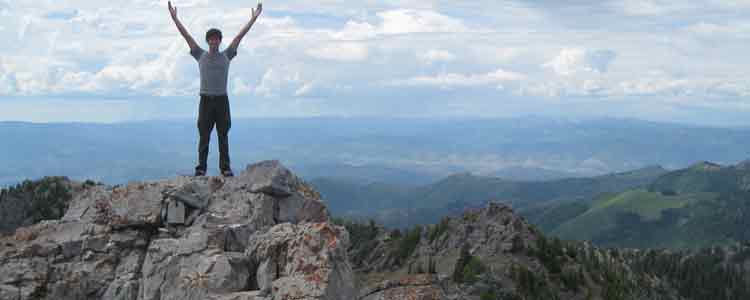
Altitude illness encompasses a mix of related issues: high altitude pulmonary edema, acute mountain illness, and high altitude cerebral edema. The most typical and least serious sort of altitude illness is acute mountain illness. People are affected by it commonly and it typically will fade in 2-4 days by itself. The symptoms include dyspepsia, headaches, exhaustion, breathlessness, dizziness and trouble sleeping. Even though acute mountain sickness generally goes away on its own, there are some who would like it to go away within the same day. For that, many of us turn to natural remedies for altitude sickness and find some great relief.
4 Herbal Remedies for Altitude Sickness
1) Ginkgo Biloba
The Memorial SloanKettering Cancer Center states that gingko may decrease the intensity of altitude illness, but notes that evidence thus far is made up of a mix of results.
2) Ginger
Ginger is believed to help quite a bit with altitude sickness, especially when its more mild. Due to the many health benefits of ginger, it is one of the most commonly used herbs when it comes to any sort of stomach issue (digestion, nausea), and as such it is often suggested for altitude sickness as well.
3) Garlic and Cloves
Garlic thins the blood and enhances blood flow, while cloves help the body to be more efficient with how it makes use of oxygen. Since these are some of the things that are impacted by high altitudes, it makes sense that these 2 herbs would help.
4) Lavender Oil
Lavender is an extremely popular herbal treatment for helping with anxiety, stress, depression, and stress related headaches. It’s because of the sedative and relaxing effects of its components. It is of great worth when it comes to alleviating spasms, bile stimulus, and digestive problems like flatulence, and it can help with enhancing digestion. Read more about lavender oil here.
4 Actions to Take for Altitude Sickness
1) Drink Water
You generally dehydrate considerably faster whenever your breathing becomes heavy and quick. Be alert and assess if you are going to the bathroom in appropriate amounts. Alcohol can increase the dehydration issue, so it should be completely avoided, particularly whenever you’re scaling at higher elevations.
2) Lower Ground
Head down to a lower elevation in the event that your symptoms don’t resolve themselves. Stay at a lower altitude that you’re already used to in order for your symptoms to fade quickly. Continue heading down lower until they do. Don’t forget, there are just two methods to completely get rid of your altitude sickness: acclimatization or descent. You’ll need to make it to an altitude that will allow your body to get enough oxygen pumping in your bloodstream.
3) Prevent Doing Any Exercises
Until you’re entirely used to the brand new elevation, physical exercise ought to be prevented, even if it’s not demanding. Exerting yourself as little as possible is preferable to using a group of various drugs.
4) Eat Digestible Meals
Avoid eating heavy, fatty, junk foods while going up in elevations. You also ought to eat in little meals instead of big ones. Eat foods that are readily digestible so that the body doesn’t expend extra energy.
Prevention
The sole recognized preventative strategy would be to get your body ready for locations above 8,000 feet. Spend a day where your body can get accustomed to a reduced elevation below that which you want to be, or scale into a higher level at a speed of 500 to 1000 feet daily while resting for a day every so often. This will help you to prevent altitude sickness since your body will have the proper amount of time to get used to the higher elevation.
